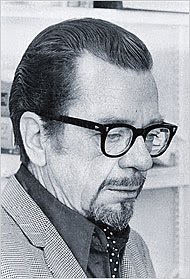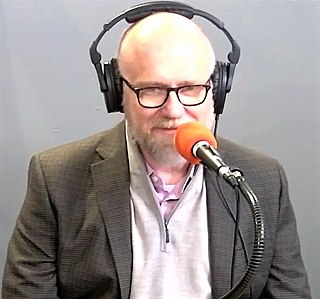A Quote by John Edward Williams
It seems to me that the moralist is the most useless and contemptible of creatures. He is useless in that he would expend his energies upon making judgments rather than upon gaining knowledge, for the reason that judgment is easy and knowledge is difficult. He is contemptible in that his judgments reflect a vision of himself which in his ignorance and pride he would impose upon the world. I implore you, do not become a moralist; you will destroy your art and your mind.
Related Quotes
God Himself - His thoughts, His will, His love, His judgments are men's home. To think His thoughts, to choose His will, to judge His judgments, and thus to know that He is in us, with us, is to be at home. And to pass through the valley of the shadow of death is the way home, but only thus, that as all changes have hitherto led us nearer to this home, the knowledge of God, so this greatest of all outward changes - for it is but an outward change - will surely usher us into a region where there will be fresh possibilities of drawing nigh in heart, soul, and mind to the Father of us all.
It makes him contemptible to be considered fickle, frivolous, effeminate, mean-spirited, irresolute, from all of which a prince should guard himself as from a rock; and he should endeavour to show in his actions greatness, courage, gravity, and fortitude; and in his private dealings with his subjects let him show that his judgments are irrevocable, and maintain himself in such reputation that no one can hope either to deceive him or to get round him.
No matter how vast your knowledge or how modest, it is your own mind that has to acquire it. It is only with your own knowledge that you can deal. It is only your own knowledge that you can claim to possess or ask others to consider. Your mind is your only judge of truth - and if others dissent from your verdict, reality is the court of final appeal. Nothing but a man's mind can perform that complex, delicate, crucial process of identification which is thinking. Nothing can direct the process but his own judgment. Nothing can direct his judgment but his moral integrity.
When a man sought knowledge, it would not be long before it could be seen in his humbleness, his sight, upon his tongue and his hands, in his prayer, in his speech and in his disinterest (zuhd) in worldly allurements. And a man would acquire a portion of knowledge and put it into practice, and it would be better for him than the world and all it contains - if he owned it he would give it in exchange for the hereafter.
The classification of facts and the formation of absolute judgments upon the basis of this classification-judgments independent of the idiosyncrasies of the individual mind-essentially sum up the aim and method of modern science. The scientific man has above all things to strive at self-elimination in his judgments, to provide an argument which is as true for each individual mind as for his own.
No man can reveal to you aught but that which already lies half asleep in the dawning of your knowledge. The teacher who walks in the shadow of the temple, among his followers, gives not of his wisdom but rather of his faith and his lovingness. If he is indeed wise he does not bid you enter the house of his wisdom, but rather leads you to the threshold of your own mind.
What honest boy would pride himself on not picking pockets ? A thief who was trying to reform would. To be conceited of doing one's duty is then a sign of how little one does it, and how little one sees what a contemptible thing it is not to do it. Could any but a low creature be conceited of not being contemptible? Until our duty becomes to us common as breathing, we are poor creatures.
The Socratic maxim that the recognition of our ignorance is the beginning of wisdom has profound significance for our understanding of society. Most of the advantages of social life, especially in the more advanced forms that we call "civilization" rest on the fact that the individual benefits from more knowledge than he is aware of. It might be said that civilization begins when the individual in the pursuit of his ends can make use of more knowledge than he has himself acquired and when he can transcend the boundaries of his ignorance by profiting from knowledge he does not himself possess.
The spiritual man habitually makes eternity-judgments instead of time-judgments. By faith he rises above the tug of earth and the flow of time and learns to think and feel as one who has already left the world and gone to join the innumerable company of angels and the general assembly and Church of the First-born which are written in heaven. Such a man would rather be useful than famous and would rather serve than be served. And all this must be by the operation of the Holy Spirit within him. No man can become spiritual by himself. Only the free Spirit can make a man spiritual.
































